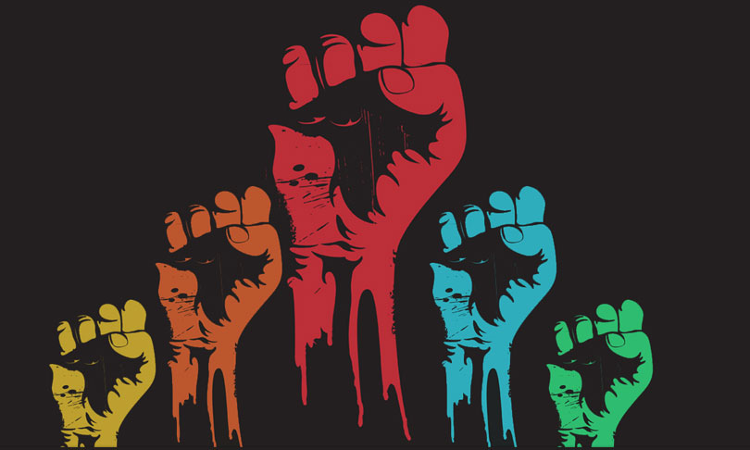On International Human Rights Day: Understanding The Gignesthai
Anamika Mishra
10 Dec 2021 10:42 AM IST

In John Locke's, Second Treatises of government, he sets an idea that one can speak against the government if that government were to trample on various individual Rights. Philosophically, it is their Moral Right to speak against the government. In Jurisprudence, we call it Natural Rights. In Legal Philosophy; we call it their Legal Rights. And, also known as Human Rights, which Individuals have by a sheer dint of them being a human; something that is inherent in us. If we look at Human Rights, the fons et origo is after Second World War and Universal Declaration of Human Rights in the 1940s. The Second World War is the macro-scale armed hostility that humanity has known. At the end of First World War, Germany and its allies were defeated and held solely responsible for the war in 1919. As a result, heavy sanctions were imposed that enfeebled the German economy by excessive financial obligations and hyperinflation. In 1924, several measures were taken for the inflation to come to rest and equilibrate and bring round the economy but in 1929, the Wall Street Crash in New York that caused the worst economic crisis of the 20th century, whose impact spread worldwide causing the unemployment rate to detonate. This led the German State severely weakened and allowed the rise of the Nazi Party with Adolf Hitler holding the reins in the year 1933. After the Unification of other states qua Germany, Germany attacks Poland in 1939 which engender the United Kingdom and France to declare war marking the Beginning of Second World War. As a result, the French Army was defeated and an armistice was signed. This led to the beginning of the Resistance movement, everywhere in Europe; the resistance is organized in different forms, id est, in form of strikes, demonstrations or protects wanted persons, printing resistance newspaper, spy for the allies etc. The Subject untouched in the war was crime against humanity, In Europe, concentration and extermination camps are built to massacre Jews, resistance fighters, political opponents, gypsies, homosexuals, people with disabilities; Japan sends 10 million Chinese civilians into forced labor camps; In Indonesia, millions of prisoners suffers the same fate on the island of Java; In Burma and Thailand, Allied prisoners are exhausted in the construction of railway lines; Moreover, hundreds of thousands of women are forcibly recruited into prostitution for the Japanese arm.
After Second World War, it was conspicuous that the horror of the war should never be allowed to occur again. As a result, The United Nations, founded in the year 1945, sought to promote peace and prevent future wars by affirming in its foundational charter faith in the fundamental human rights, the dignity and the worth of the human life adopted the Universal Declaration of Human Rights as an International Magna Carta for all humankind. Three Generational Rights were encompassed in the Universal Declaration of Human Rights. The First Generational Rights are regarded as negative rights and corresponds to Civil and Political Rights. Among those rights are the right to life, freedom of speech, freedom of religion, right to fair trial, equality before the law, and other civil and political rights. The Second Generational Rights is a product of the rapid nineteenth century industrialization and accompanying Social and economic Rights. It is attributed to the Russian Revolution which is placed in the Russian Constitution. Also, in 1871, the unification of Germany, Otto von Bismark, puts in place all the principle of social solidarity, that is, he believes if people are interlinked, then necessarily solidarity develops. The Third Generational Rights are Collective Rights including self-determination, economic and social development, healthy environment, natural resources, and participation in cultural heritage. Hence, such rights are positive and collective and demand responsibility, which lies beyond the nation-state.
The Bearer of Human Rights is the Individual. The German Jurist, Von Savigny, emphasized that it is the people consciousness that has generated laws from customs, philosophically as Immanuel Kant suggests, people may be considered as mass or collective opinion but in political sense, it is an Individual's will that renders law. These Human Rights are the rights of Individual of every color, race, religion, orientation, class, career, sex, caste, creed, and people with disability or not, people migrant from another state or country or not, notwithstanding anything, these rights are protector of the Identity providing equal justice, equal opportunity and equal dignity.
Views are personal.


